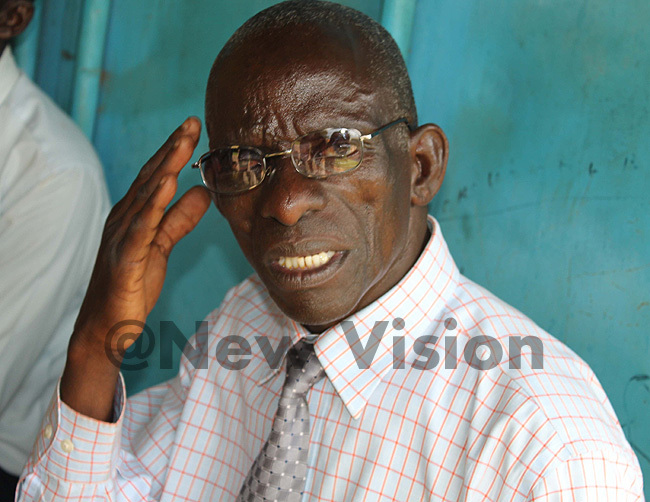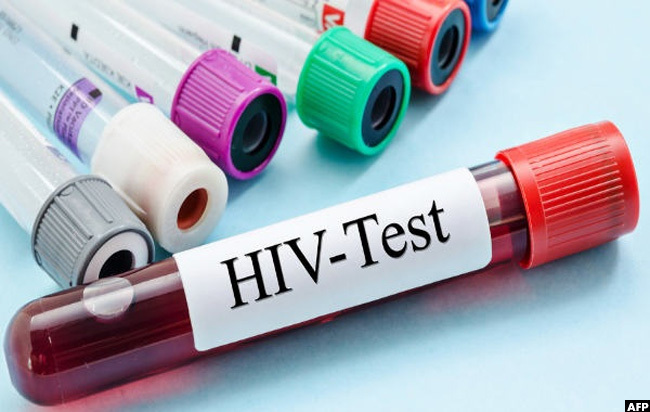Advanced HIV diseases: Who is vulnerable?
Activists regret that despite progress in tackling the HIV epidemic, many people start antiretroviral therapy at the time of advanced HIV disease. But what exactly is this?
HEALTH MATTERS
Are you living with HIV? If you are, do you know your advanced HIV disease status? If you don't, you should be worried. You risk getting tuberculosis (TB) or cryptococcal meningitis, the most common advanced HIV diseases.
_______________________________
According to the World Health Organization (WHO), having an advanced HIV disease means you have a CD4 cell count of below 200 cells or if you have an AIDS-defining illness.
When a person gets one of the life-threatening diseases that occur in HIV-positive people, they are diagnosed with the advanced stage of HIV infection known as AIDS. They include; cervical cancer, coccidioidomycosis, cryptococcosis, encephalopathy, herpes simplex, Kaposi sarcoma, lymphoma, pneumonia, toxoplasmosis of brain and wasting syndrome due to HIV.
CD4 cells are white blood cells that fight infections; they are like a snapshot of how well your immune system is functioning. A normal range of CD4 cells is about 500-1,500. Usually, the CD4 cell count increases when HIV is controlled with effective treatment.
There are over one million people living with HIV in Uganda, and about 500 deaths every week. Most of these deaths are from advanced HIV diseases, according to UNAIDS. Some people are suffering from advanced HIV disease but they don't know, and some people die of related diseases when they would not have died.
Salamuka's story
 Salamuka was was later diagnosed with cryptococcal meningitis
Salamuka was was later diagnosed with cryptococcal meningitis
Steven Salamuka has lived with HIV for 35 years. Last year, he fell clinically sick, suffered from chronic kidney problems, fevers, fatigue, headache and a terrible stiff neck. He saw a primary care doctor, an urologist and a pulmonologist. Apparently, they all told him there was nothing wrong with him.
With tests revealing nothing amiss, Salamuka's primary care doctor decided that he must be depressed and prescribed antidepressants. They didn't help at all, but he continued experiencing unbearable pain throughout his body. He was later diagnosed with cryptococcal meningitis.
Dr. Steven Watiti, a person living with HIV and also an activist, says the only way to know for sure if you have advanced HIV disease is to get tested. Many of the severe symptoms and illnesses of HIV disease come from the opportunistic infections that occur because your body's immune system has been damaged.
He also advises that if a person is experiencing any of those symptoms, they should see their healthcare provider.
Misconception, ignorance and fear
In addition to regular testing and adherence to treatment, there are other steps one could take to avoid advanced HIV disease.
For example, you are advised to spare your body from stress, for stress can weaken your immune system and make you more vulnerable to illness and infection. You should also get vaccinated, practice safer sex, eat nutritious food and take care of your body by doing exercises.
Activists say they want to ensure that people living with HIV don't die of advanced HIV diseases, although they regret that in Uganda, HIV is still a subject of serious misconception, ignorance and fear.
 Dr. Watiti says the only way to know for sure if you have advanced HIV disease is to get tested
Dr. Watiti says the only way to know for sure if you have advanced HIV disease is to get tested
Peter Kalimba, a client relations officer at the Infectious Disease Institute, Mulago, says HIV can be spread through sex, child birth or sharing of needles. The virus works by weakening one's immune system so that other infections and illnesses can take hold and do harm. Many lives have been lost this way.
Kalimba says there is an urgent need to present facts about HIV simply, to reduce the fear, stigma and discrimination associated with the virus, and to provide practical advice on how to minimize the risk of contracting or transmitting the infection, as well as how to provide care and support to infected and affected people.
Activists regret that despite progress in tackling the HIV epidemic, many people start antiretroviral therapy at the time of advanced HIV disease, when their immune system is weakened and there is high risk of death or disability caused by opportunistic illnesses. Of all deaths from HIV-related diseases annually, half are due to tuberculosis and cyyptococcal meningitis, according to UNAIDS.
Kalimba says that despite all of the progress made in improving the care available for advanced HIV, there is still a long way to go. Last year, as many as 770,000 people died of HIV worldwide, including 23,000 from Uganda.
Meanwhile, Watiti says HIV is a manageable condition.
When the medication for HIV is taken regularly, people living with the virus can lead productive, healthy lives and can live just as long as the people without HIV.
While HIV cannot yet be cured, and one has to take medication for life, the disease is no longer a death sentence. With adherence to medication, the virus can become undetectable in your blood. And when the virus is not detectable in your blood, it would be impossible for you to spread HIV to other people. This is known as U=U, meaning "Undetectable=Untransimissable," says Watiti.
 Many people do not know they have HIV because they have not tested yet. You need to know your HIV status
Many people do not know they have HIV because they have not tested yet. You need to know your HIV status
According to Dr. Abdullah Nkoyooyo from the Infectious Disease Institute, HIV therefore is not a disease you need to be ashamed of. "The most important thing is to get tested, and if the test is positive, you start the medication early and take it regularly," he says.
"Sometimes, when HIV is not detected early enough, or when the medication is not taken properly, serious illnesses can still happen, and this is what is called advanced HIV disease," adds Nkoyooyo.
This can happen when a blood test of your immune system shows that your CD4 count is below 200. For these people, they are at risk of many different infections/diseases that people without advanced HIV don't usually get.
These can be diseases of the lungs, skin, intestines or brain and many can be deadly. Unfortunately, many people do not know they have HIV until they get one of these infections, which is why regular HIV testing is very important.
As mentioned at the beginning of this article, tuberculosis and cryptococcal meningitis are the most common advanced HIV diseases. People with TB usually have cough, weight loss and night sweats, while people with meningitis will have headaches, stiff neck and confusion, and are sensitive to light.
"If you find out you have advanced HIV because of your low DC4 count, you can get medications that will prevent these infections from happening, called prophylaxis. Luckily, the infections common in advanced HIV disease also have better treatment than before," says Nkoyooyo.
He advises that it is still much safer to have HIV treated before it becomes advanced, adding that if you go to a hospital anywhere in Uganda, good treatment for advanced HIV infections is increasingly available, at no cost.
On his part, Watiti advises people living with HIV to get a CD4 test every three to six months, or as often as their doctor recommensd, to see how well their immune system is doing. HIV treatment is recommended for everyone who has HIV, but it is especially important for people with a low CD4 count. It is only a person living with HIV who needs a CD4 count, as a measurement.
It is advisable that you know your most recent CD4 count and viral load. With both of these diseases, it is best that you get treatment before you start to feel sick, because this can prevent the dangerous illness and death.
Some clinics in Uganda are equipped with testing equipment and have the medication to treat the disease if you test positive. Just like the medications for HIV, you must be sure to take medications for cryptococcosis or TB everyday as prescribed, says Watiti.
One of the important ways of treating meningitis is with a procedure called a lumber puncture (mulalama). These are necessary to help drain some of the extra water that builds up around your spine and brain, and also allows the disease to be diagnosed. Lumber punctures are safe, and in many cases prevent people from dying from meningitis, according to Kalimba.
He says while research has done a lot to help so far, it's up to the people, governments and partners to help. Many clinics do not have the testing supplies and medications that are necessary to treat HIV and prevent advanced HIV.
The fight against advanced HIV disease is far from over. While it is a worthy adversary, we cannot be afraid of it. We have the tools - testing and medication - to make sure there are no more needless deaths.
"So let us get out there and spread the word so that advanced HIV disease becomes a thing of the past, says Watiti.